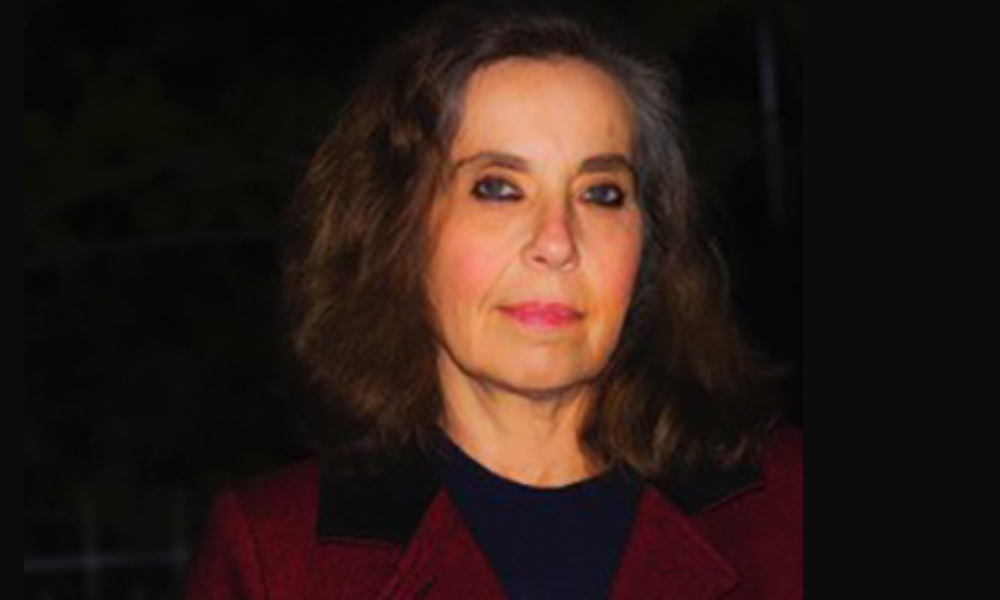
Klodawsky says after seeing lawyer speak up about long-term care, she wanted to amplify her voice

Filmmaker Helene Klodawsky was not expecting her next project to be profiling a lawyer. Yet, at the onset of the COVID-19 pandemic, she came across a clip of Melissa Miller speaking on YouTube about elder rights.

Helene Klodawsky (photo by John Lucas)
“It was only a few minutes long,” says Klodawsky. “I saw her talk, defending her clients and speaking out against some of these corporate negligence practices that she often was seeing, and this was well prior to COVID.”
Klodawsky says that as the pandemic’s effect on long-term care became apparent in the following weeks and months, she sensed that Miller would be an essential figure in the story.
“I just knew that what Melissa was saying was so important and really reflected not only what was happening in long-term care but this emerging elder rights movement. And I wanted to amplify her voice.”
So, Klodawsky approached Miller to be in her new film Stolen Time, which was just released to select theatres. The film follows Miller as she works on a mass tort representing hundreds of families fighting some of the world’s most powerful long-term care corporations.
Klodawsky says Miller initially hesitated to participate, but it was not because of the topic.
“Sometimes the greatest change-makers are often very modest,” says Klodawsky. “And they say, ‘Why me?’ Melissa was exactly like that.”
Klodawsky explained to Miller how a film can have reverberations – often much more broadly than a court case – and that this film would reflect Miller’s vision to highlight injustices in long-term facilities. So, Miller and her firm Howie, Sacks & Henry LLP invited Klodawsky and her film crew to follow them through the litigation process.
“It's not every firm that would take the chance that they did,” says Klodawsky. “The only real agreement that we had was that we wouldn't harm the clients.”
Litigators, like filmmakers, are storytellers, so it is not surprising that Miller and her firm knew the value of video footage in telling their clients’ stories.
“Melissa has a very intuitive sense of filmmaking and storytelling. So, I think she understood the kind of character or the kinds of participants that we would need for this film, someone who would be able to tell their story in a way that was filmable.”
Klodawsky says she was struck by how Miller’s clients sang her praises. They told Klodawsky that Miller was there to listen to them at the lowest, most isolated, desperate point in their lives. Klodawsky says Miller maintained her compassion despite listening to hundreds of similar stories.
Klodawsky admits to initially having little knowledge of the law but credits Miller and partners for guiding her through the complexities of the legal system. "It's a testament to Melissa, really, and to Adam [Wagman], one of her partners, that they really took me through the steps when I was confused."
In the film, Miller worked with advocacy groups and took her fight to the government to push for broader legislative change. The film includes footage of Miller speaking to activists at a political demonstration for improvements in long-term care regulation.
Klodawsky says she saw the importance of lawyers to social justice movements while filming Miller’s story. “When lawyers and citizens groups and people that have been harmed come together, I think it's wonderful to have that kind of energy and different kinds of expertise.”
Klodawsky hopes her film will be seen worldwide, including in the United States, UK, Europe, and Australia, where similar dynamics exist in long-term care facilities.
“When groups that represent large numbers of elderly and retired people see the film in other countries, they're saying, ‘This is exactly what's happening here.’”
Klodawsky hopes to spur long-term change as the effects of the pandemic recede since these issues existed before COVID-19.
“What I'm hearing is that the issues are getting swept under the rug, that the staffing is really low, and people are suffering. So, it's important to get this conversation amplified whenever it feels like it's crawling under the rug again.”
Stolen Time premiered at Hot Docs in Toronto on April 3. Klodawsky says it will be available to communities all over Canada through the National Film Board of Canada and will include a study guide. Plans to televise it on Super Channel are in place, and they are still in negotiations with other distributors in the United States.